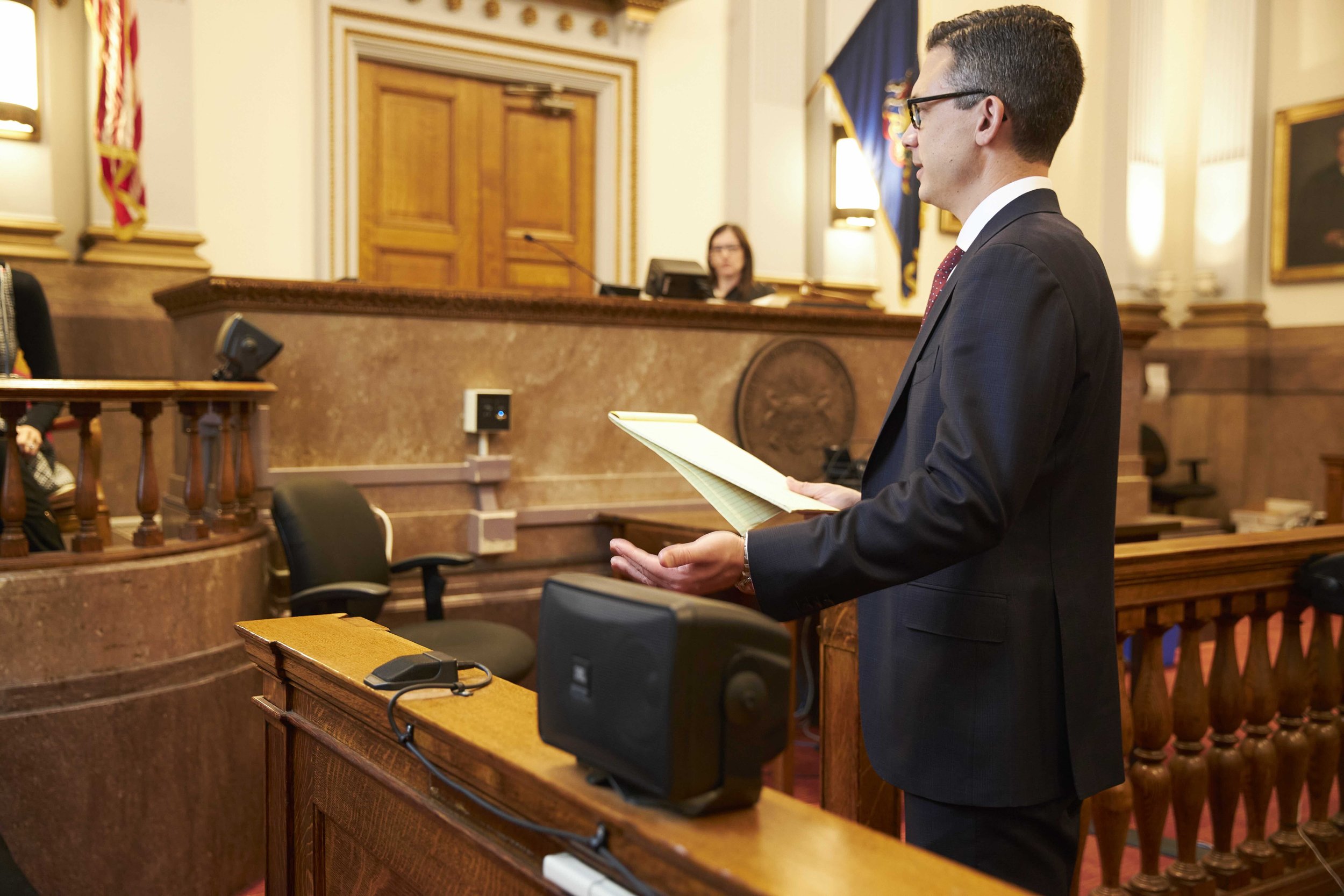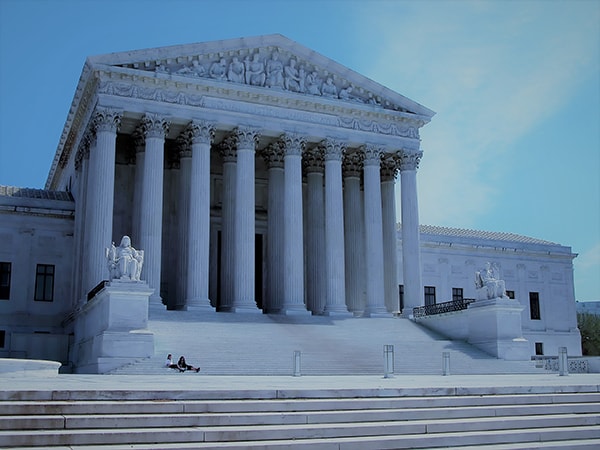Federal Crime Lawyer: Protecting Your Legal Rights Versus Serious Federal Charges
Federal Crime Lawyer: Protecting Your Legal Rights Versus Serious Federal Charges
Blog Article
Demystifying the Process of Federal Appeals: What You Need to Know
Navigating the complex world of government allures can frequently feel like passing through undiscovered waters for those unknown with the procedure. Recognizing the subtleties of appellate court territory, the intricacies of filing a notice of appeal, presenting a compelling quick, and making a convincing dental debate are vital elements that can substantially influence the end result of an instance. By unraveling the layers of intricacy bordering government allures, people can get a more clear understanding into the systems that govern this critical point of the legal system.
Understanding Federal Appeals Refine
Diving right into the detailed world of the federal appeals process introduces a organized and systematic trip with the judicial system. Federal charms act as an essential system for examining decisions made by lower courts. Understanding this procedure is crucial for any person associated with lawful process at the federal degree.
The process usually begins with an event dissatisfied with a lower court's judgment filing a notification of charm. This sets off a review by a greater court, where a panel of judges analyzes the legal arguments presented by both events. Briefs describing the lawful reasoning behind each party's setting are submitted, and dental arguments might be heard to clarify intricate problems.
The appellate court's choice is based upon an extensive assessment of the reduced court's process and the debates offered. The courts do not review realities yet concentrate on whether lawful mistakes took place that influenced the reduced court's choice. As soon as the appellate court gets to a choice, it can verify, reverse, remand, or modify the reduced court's judgment, offering clearness and finality to the legal dispute. Understanding this process is important for navigating the complexities of government allures successfully.
Appellate Court Jurisdiction Explained
As we progress from recognizing the federal appeals procedure to exploring the complexities of appellate court territory, an essential aspect emerges relating to the authority and limits of these greater courts in the legal landscape. Appellate court jurisdiction describes the range of cases that a specific appellate court has the power to evaluate and decide upon. Unlike test courts that hear instances for the very first time, appellate courts are limited to examining decisions made by reduced courts. These decisions can consist of judgments from both state and federal courts.
Appellate courts have jurisdiction over details types of instances, usually those entailing legal mistakes, step-by-step issues, or concerns of regulation instead of accurate conflicts. The territory of appellate courts is typically laid out in statutes and laws that regulate the court system. Understanding appellate court jurisdiction is vital for parties associated with the charms procedure as it determines whether a situation is qualified for testimonial and the extent to which the appellate court can intervene in the reduced court's choice.
Declaring a Notice of Appeal
The preliminary action in starting the government appeals process involves filing a Notice of Appeal with the suitable appellate court. This essential record officially informs the court and the various other parties associated with the instance that the appealing party plans to seek a review of the reduced court's decision. Submitting a Notice of Appeal is a stringent step-by-step requirement that sets the appellate process moving.
When preparing the Notice of Appeal, it is vital to make sure conformity with the certain policies and standards of the appropriate appellate court. federal appeal lawyers. The document must generally consist of information such as the case name, the reduced court's name, the day of the judgment being appealed, and a succinct declaration showing the premises for the charm

Briefing and Dental Argument
In the appellate process, offering written briefs and participating in dental arguments play essential duties in promoting for the appealing event's position before the appellate court. Briefs are thorough legal papers that outline the celebrations' debates, lawful authorities, and analysis supporting their placements. These written submissions give the court with a comprehensive understanding of the realities of the instance, the relevant legislation, and why the appealing event thinks the lower court's decision ought to be rescinded.
Adhering to the submission and evaluation of the briefs, dental debates supply the parties a chance to additional clarify their placements, address any concerns the appellate judges may have, and emphasize vital factors from their created briefs. Dental arguments are a chance for the attorneys to persuade the judges through spoken advocacy and reactions to questions from the bench.
Both the written briefs and dental debates are essential elements of the appellate process, enabling celebrations to provide their situation completely and compellingly before the appellate court. - federal crime lawyer
Getting the Appellate Court Choice
Upon conclusion of oral disagreements and submission of written briefs, the next crucial stage in the appellate procedure includes awaiting the definitive ruling from the appellate court. This period of expectancy can be full of a mix of anxiousness and wish for celebrations included in the appeal. The appellate court's decision is typically supplied in a created style and describes the court's conclusions on the lawful concerns provided, the reasoning behind their choice, and the judgment made. The time frame for getting the appellate court's Home Page choice can differ, but courts aim to provide prompt resolutions. When the decision is released, celebrations should carefully assess the court's judgment to understand the end result and figure out any type of more actions that may be necessary. Whether the appellate court verifies, reverses, or remands the reduced court's decision, recognizing the ramifications of the judgment is vital for all celebrations entailed in the appellate process. Promptly examining and comprehending the appellate court's choice is essential in browsing the following steps in the lawful process.
Verdict
To conclude, the federal charms procedure is a facility yet essential step in looking for justice. Recognizing the appellate court jurisdiction, filing a notice of appeal, preparing briefs, and providing dental debates are all essential components of this process. Ultimately, receiving the appellate court decision can offer clearness and resolution to lawful conflicts. It is vital to browse the government allures process with persistance and attention to information to accomplish a reasonable result.
As we proceed from recognizing the government allures process to exploring the complexities of appellate court jurisdiction, a fundamental facet comes to light pertaining to the authority and restrictions of these greater courts in the legal landscape. Appellate court jurisdiction refers to the extent of instances that a specific appellate court has the power to decide and review upon. Unlike test courts that hear cases for the initial time, appellate courts are restricted to evaluating decisions made by reduced courts. Comprehending appellate court jurisdiction is crucial for events included in the appeals procedure as it figures out whether a case is qualified for evaluation and the extent to which the appellate court can interfere in the lower court's choice.

Report this page